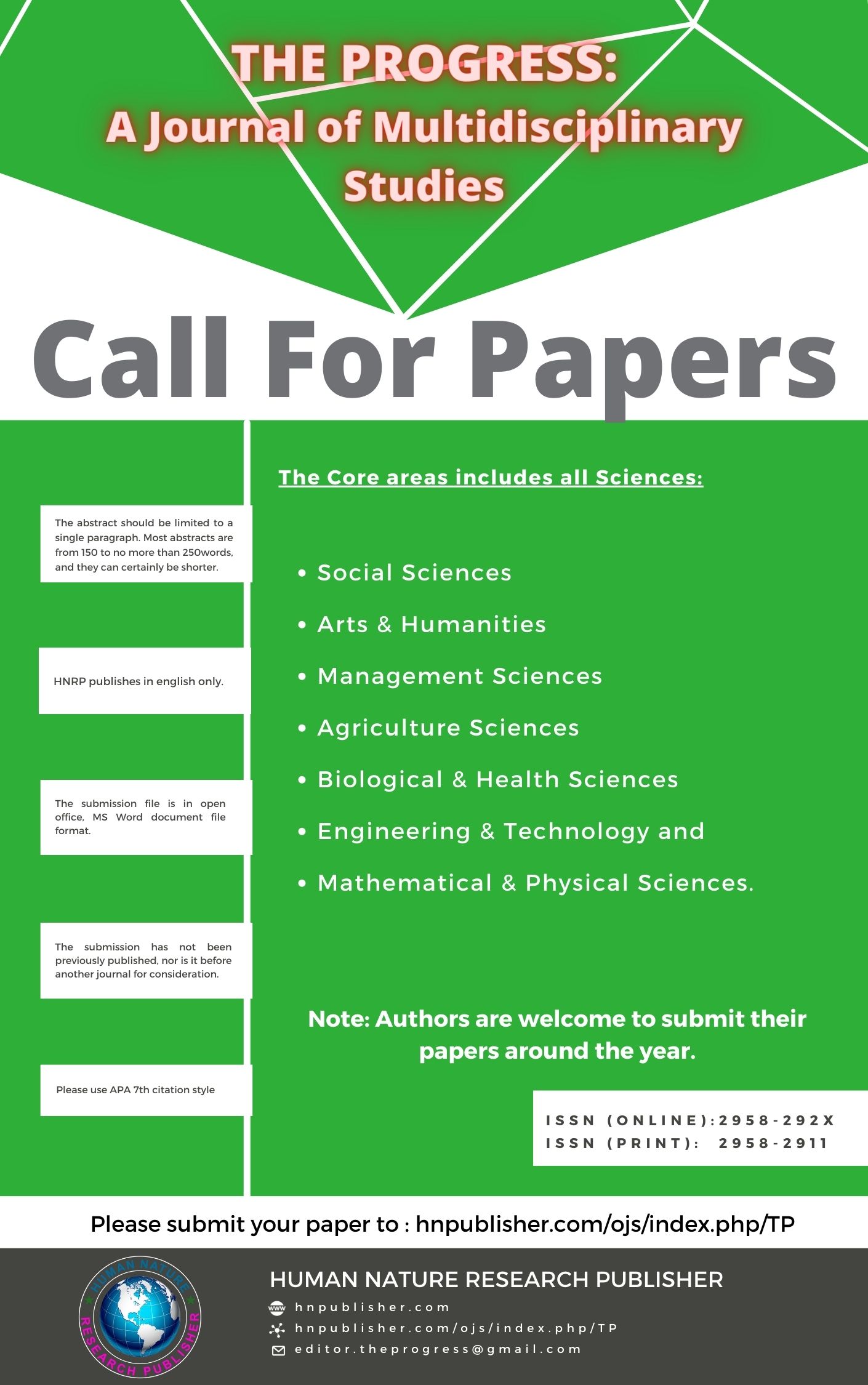Computer-Mediated Turn Allocation Technique: A Veritable Tool Employ by Yoruba/English Bilinguals on the Internet
DOI:
https://doi.org/10.71016/tp/02sdan29Keywords:
Hybridization, Code-mixing, Ethnomethodology, Turn takingAbstract
This study examines how Yoruba-English bilinguals organize their thoughts to be mutually intelligible in their conversations on the Internet. Specifically, the research investigates how Yoruba-English bilinguals apply “Turn Allocation Technique” as a veritable tool that makes conversations on the Internet meaningful which is the essence of communication, and also investigates the occurrences of bilingualism by-products such as, code-mixing and hybridization on Facebook, WhatsApp, etc. The data are obtained from a survey on social media platforms with a view to achieving an adequate understanding of some aspects of “Turn Allocation Technique” in the conversations of Yoruba-English bilinguals. Different interactions on the Internet were chosen. Therefore, we examined how the subjects code-switch and code-mix while taking turn to communicate on the Internet. A context-driven sociolinguistic model is employed as our guide in analyzing the data. This is Harold Garfinkel’s Ethnomethodology of Language. In employing ethnomethodology of language, we tried to see the conventions of society, and the rules which people use to place themselves and others in social contexts. The study reveals that interlocutors take turn to chat unlike an SMS, they exhibited great dexterity by using the two languages together in a sentence without its meaning being distorted, and the interactants on employ ‘Turn Allocation Technique’ to organize their conversations so that there would be mutual intelligibility. It is established in this study that the contact between the speakers of English and Yoruba has led to bilingualism which has its consequences. Some of the consequences of bilingualism are code-switching/code-mixing, interference, hybridization, etc.
Downloads
Published
Issue
Section
License
Copyright (c) 2021 Rotimi Gbenga Akinyede, Alonge Sunday Gbenga (Author)

This work is licensed under a Creative Commons Attribution-NonCommercial 4.0 International License.








